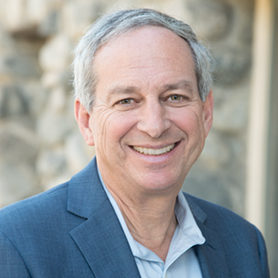5-17-21
An editorial that ran in the L.A. Times over the weekend made poignant arguments against hastily investing in a statewide Transitional Kindergarten (TK) program for all 4-year-olds.
Child Care Resource Center agrees with the editorial author that universal TK would be detrimental without a plan for ensuring teachers are properly trained in child development, social-economic inequities aren’t worsened, and the importance of play time isn’t forgotten.
The editorial supports what CCRC President & CEO Dr. Michael Olenick explained in a recent letter to Gov. Gavin Newsom. Like the editorial, Dr. Olenick argues that the bountiful early education funding available now could dry up in the not-too-distant future, a shortage of qualified teachers may create disparities in the quality of early education for children of low income versus wealthy families, and lest we forget the importance of play in a child’s early years.
CCRC advocates for child care providers and agrees with the sentiment of the editorial that this industry would be jeopardized by universal TK. The editorial hits the nail on the head with this line: “Preschools are already in shaky financial shape, and if the transitional kindergarten program causes more to go under, the result would be fewer child care openings for 3-year-olds.”
Read the op-ed here and more on Dr. Olenick’s letter below:
5-13-21
Following California Gov. Gavin Newsom’s announcement this week of a statewide universal preschool program, Child Care Resource Center President and CEO Dr. Michael Olenick is calling on the governor to consult with private child care providers and advocates.
In a letter to the governor, Dr. Olenick warned that a universal preschool program and Early Transitional Kindergarten (ETK) could have unintended consequences on the availability of child care.
Under the governor’s plan, all 4-year-olds in the state would be enrolled in transitional kindergarten by 2024. But as Dr. Olenick notes in his letter to the governor, many teachers currently are not required to have child development training and school districts aren’t presently required to follow Community Care Licensing standards.
Furthermore, Dr. Olenick warns that a universal preschool would deplete the supply of private child care providers because parents who currently pay for early education would likely opt for the free option at the local schools. A reduced pool of private child care providers not only damages this sector of the economy but would also force working parents to make a second child care arrangement if their work hours don’t align with the school district program.
Read Dr. Olenick’s letter to the governor in its entirety:
Early Transitional Kindergarten could inadvertently decrease the supply of child care rather than increasing it.
I would hope that before moving forward with the universal preschool plans and ETK, the state will confer with the CA Head Start Association that operates in California to ensure these comprehensive programs are not crowded out.
I would also hope that, before moving forward with this plan, the state consults with private child care providers who currently provide full day programs. There are many available studies that show how New York City and Georgia integrated the private sector into their universal programs. Perhaps California could require a mixed delivery system and require school districts to contract for the preschool portion at private sector sites which are more likely to support full time, working parents
And, here’s why it’s important:
1. If ‘universal’ means free, then private child care and preschool programs are at risk of being put out of business. When Oklahoma City transitioned to the universal concept, it resulted in a severe decrease in the private supply.
2. ETK and universal preschool running through school districts could actually reduce infant/toddler programs as many current providers now subsidize their infant/toddler programs with their preschool programs. Parents who currently pay for preschool will most likely opt for the free option at the local school reducing revenue for local providers.
3. Head Start preschools are at risk. In the City of Los Angeles, there are roughly 10,000 parents who may choose LAUS over Head Start because they don’t have to prove they are low income. Head
Start programs have been in existence for 60 years and provide school readiness activities in a developmentally appropriate way with adult child ratios of 1 adult for every 8 children, nutritional meals, special needs assessments, mental health support, health screenings including dental, and parent empowerment. Many Head Start programs blend California Department of Education State preschool program resources to create full day, full year programs.
4. K-12 teachers are currently not required to have child development training. School districts are not required to follow Community Care Licensing standards. In an elementary school setting, will there be adequate time for children to explore, play and rest? Will there be adequate, age appropriate outdoor play equipment? Will adult child ratios follow early care best practices or will 20-30 children be assigned to one teacher?
5. Traditional part day programs require parents who work to make a second arrangement to accommodate the other 7 or more hours of care for their children. What happens during school breaks, summers, and pupil free days? Young children need consistency and stability.
6. LEAs will also need to examine their physical plants to determine whether there are sufficient classrooms appropriate for children younger than are currently served. Are there bathrooms that accommodate much smaller children? Are they easily accessible? Are lunch and activity tables, desks and chairs appropriate for 3 and 4 year olds?
Before the state moves forward with a universal early education plan, Dr. Olenick is urging the governor to meet with advocates and private child care providers to fully understand the impacts and appropriate guardrails needed to keep the system from collapsing.


